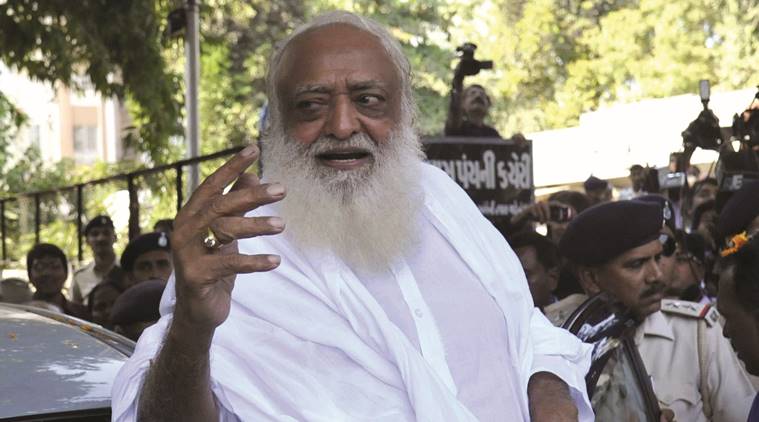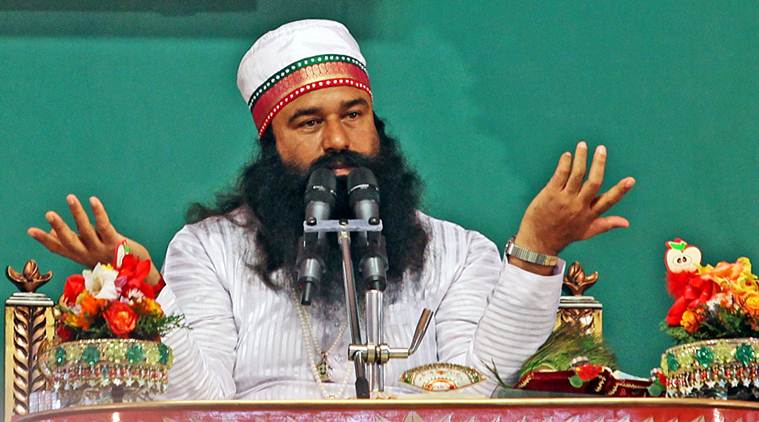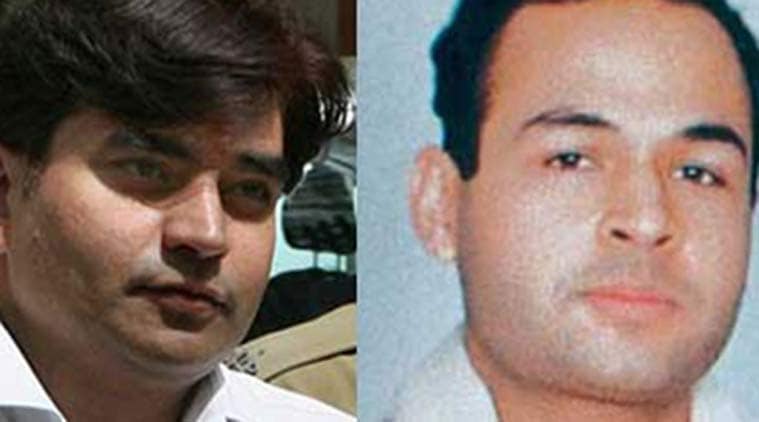 Asaram convicted: With several witnesses of the case being murdered by Asaram’s loyalists, it certainly would have been very tough for the girl to not buckle under pressure and continue the fight for justice. (File)
Asaram convicted: With several witnesses of the case being murdered by Asaram’s loyalists, it certainly would have been very tough for the girl to not buckle under pressure and continue the fight for justice. (File)
The Jodhpur special court verdict convicting self-styled godman Asaram can be seen as an example of justice prevailing against all odds. In the five years since the case was first registered, the victim and her family have been traumatised in one way or the other. With several witnesses of the case being murdered by Asaram’s loyalists, it certainly would have been very tough for the girl to not buckle under pressure and continue the fight for justice. “We had complete faith in the judiciary and are happy that we got justice,” the victim’s father told journalists after the verdict.
Considering the delay in the Indian justice system and the role of influentials in swaying trial in many cases, people often give up. But in this particular case, the courage shown by the victim is exemplary. Even though India ranks 135 out of 147 countries on women empowerment in the United Nations Human Development Index, there have been rare instances where women who have single-handedly fought for justice against godmen and politicians and have managed to get their conviction. This is one such case.
Here are the examples when women didn’t bow down against the powerful:
Asaram Bapu case
A court in Jodhpur on Wednesday convicted self-proclaimed godman Asaram Bapu, who was accused by a 16-year-old minor of rape and sexual assault, and sentenced him to life imprisonment till death. Such instance of a woman coming out against an ascetic, who has a massive clout and political following, is very rare in the country’s history. The incident is just one of the two cases lodged against the self-styled godman. Another case is at trial stage in Gandhinagar, where two sisters accused Asaram and his son Narayan Sai of rape, sexual assault, illegal confinement and other charges.
The present case dates back to 2013, when the 16-year-old victim, whose parents were devotees of Asaram, fell ill. Her parents were made to believe that evil spirits had possessed her and they were advised to meet Asaram for remedy. The parents took the minor to Asaram’s ashram in Manai, Jodhpur, on August 14, 2013, where the godman physically molested her for over an hour and also threatened her against revealing anything to her parents.
Gurmeet Ram Rahim Singh case
 Dera Sacha Sauda chief Gurmeet Ram Rahim Singh was convicted in two rape cases on August 25, 2017. (File)
Dera Sacha Sauda chief Gurmeet Ram Rahim Singh was convicted in two rape cases on August 25, 2017. (File)
Dera Sacha Sauda chief Gurmeet Ram Rahim Singh was convicted in two rape cases on August 25, 2017, leading to massive violence and clashes that were perpetrated by his huge supporter base. The fact that one of the victims had written to then prime minister Atal Bihari Vajpayee way back in 2002 asking for action to be taken against him shows how women empowerment is still something India lags in. One of them claimed that she was told that she had been raped to get “purified”. His conviction was followed by riots across the state of Haryana, particularly in Panchkula and Sirsa, where his followers went berserk. Singh had also been implicated in the alleged murders of at least two of his followers, as well as a journalist investigating his practices.
Jessica Lall murder case
 Jessica Lall was shot dead by Sharma after she had refused to serve him liquor at a restaurant in 1999. (File)
Jessica Lall was shot dead by Sharma after she had refused to serve him liquor at a restaurant in 1999. (File)
The murder of model Jessica Lall in 1999 by Manu Sharma, son of former Haryana Congress leader Venod Sharma, created ripples in the media but what caught the nation by surprise was the unwavering pursuit of Lall’s sister and family to bring the accused to book despite the clout he held at that time. On the fateful day of April 29, 1999, Sharma shot dead Lall after the 34-year-old refused to serve him liquor at the Tamarind Court restaurant in south Delhi’s Mehrauli. Most of the witnesses turned hostile and there was pressure on Jessica family to withdraw the case. The case continued to be in the national limelight till Sharma, who was acquitted by a trial court in 2006, was finally convicted and handed a life sentence by the Delhi High Court following a public outcry.
Recently, the case again made news after Jessica’s sister Sabrina Lall said she had forgiven Sharma and had no objection to him being released from prison. Sabrina even said that her mother might have forgiven Sharma in 1999 if he had apologised to her.
Nitish Katara murder case
 Katara was murdered by Bharti’s brothers Vishal and Vikas Yadav as they did not approve of the affair since he belonged to a different caste. (File)
Katara was murdered by Bharti’s brothers Vishal and Vikas Yadav as they did not approve of the affair since he belonged to a different caste. (File)
In an interview with Indian Express, Neelam Katara, mother of Nitish Katara, had said her health, family life and finances took a back seat while she fought to get her son’s killers punished. Nitish Katara was kidnapped from a marriage party on the intervening night of February 16-17, 2002 before he was killed for his alleged affair with Bharti Yadav, the daughter of Uttar Pradesh politician D P Yadav. Katara was murdered by Bharti’s brothers Vishal and Vikas Yadav as they did not approve of the affair since he belonged to a different caste.
After the trial court in 2008 convicted Vikas and Vishal Yadav, legal loopholes created fresh problems for Katara. Requests for parole for the two convicts before the Delhi High Court led to the revelation that the Yadavs had been going in and out of prison for “hospital visits” and “court dates” which stretched far beyond what the rules allow.
Bhanwari Devi gang rape case
The story of Bhanwari Devi shows how a single person from a backward class can stand up to the mighty and make an inspiring difference. About 28 years ago, Bhanwari Devi, who belongs to the potter community of Rajasthan, was working in the fields with her husband around dusk when she was gang-raped by a group of upper-caste men. Her pleas and cries were silenced by barbaric brutality. The incident in Rajasthan, which still has a tradition of child marriages, saw a nationwide outrage, very rare at that time in India’s conservative society. Apparently, the men were angry with her for trying to prevent a nine-month-old Gujjar girl’s wedding a few months earlier. Though her alleged rapists remain free, the case resulted in Supreme Court formulating guidelines to deal with sexual harassment in the workplace.